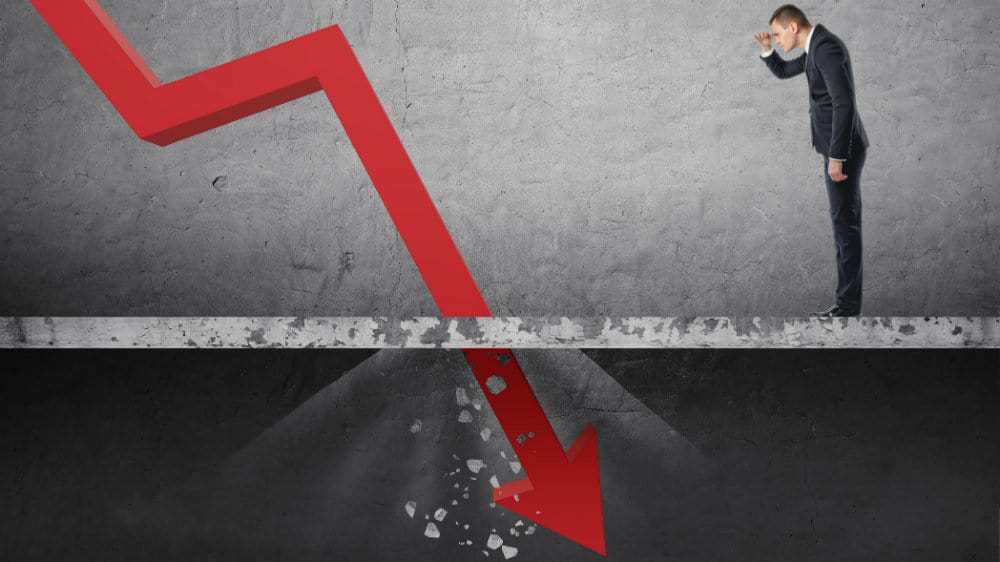There is a growing threat in the global economy that I believe could cause an FTSE 100 stock market crash. Many investors are currently concentrating on risks, such as inflation and rising interest rates. Nevertheless, there is another challenge in the background that analysts, and the broader markets, seem to be overlooking.
This challenge could overwhelm the global financial system and cause a significant economic depression if left unchecked.
FTSE 100 threat
The FTSE 100 is a relatively unique index. The majority of its constituents are resource and banking stocks. This means the index is particularly exposed to economic shocks, as these two sectors tend to feel the pain more than any other industries.
One of the most significant risks to global economic growth at present is debt. Since the financial crisis, global debt has been rising, and growth really accelerated during the pandemic.
This was not such an issue when interest rates were pinned to the ground. However, now that central banks are starting to increase interest rates to deal with rising inflation pressures, these debt mountains could become a problem.
Unfortunately, this risk is already having an impact on the global economy. Several highly indebted Chinese property developers have become insolvent over the past couple of months, which has impacted China’s giant property sector.
China’s construction market consumes a vast amount of resources every year. And if demand drops significantly, commodity prices may slump. This would hit profits at companies like Rio Tinto, a principal FTSE 100 constituent. A Chinese crisis could also hit profits at HSBC, another major player in the blue-chip index. Depending on the scale of the losses, these headwinds could cause a stock market crash.
And the impact of these insolvencies is already being felt around the world. A construction project in London’s Battersea region has ground to a halt after its Chinese owner stopped paying contractors. It is unclear how this development will hit the already fragile UK construction industry.
Other emerging economies are also struggling with rising debt levels. They may have to significantly reduce spending and increase taxes to meet their obligations to creditors. These changes may have a knock-on impact on their economies.
Stock market crash risks
While debt levels are a growing threat to the global economy, it is not all bad news. Some corporations are holding record levels of cash. The private equity industry is also sitting on a record amount of cash, or so-called dry powder. These investors could step in to rescue companies struggling to meet their obligations. These buyers could help offset the negative impact of a debt-induced FTSE 100 stock market crash.
What’s more, while I believe that rising debt levels have the potential to cause a stock market crash, as a long-term investor I am not bothered about short-term market headlines. I concentrate on long-term fundamental growth factors, and I am excited about the potential for the global economy over the next decade.
As such, while I plan to keep an eye on debt risks, I will not let these challenges dictate my investing actions.








